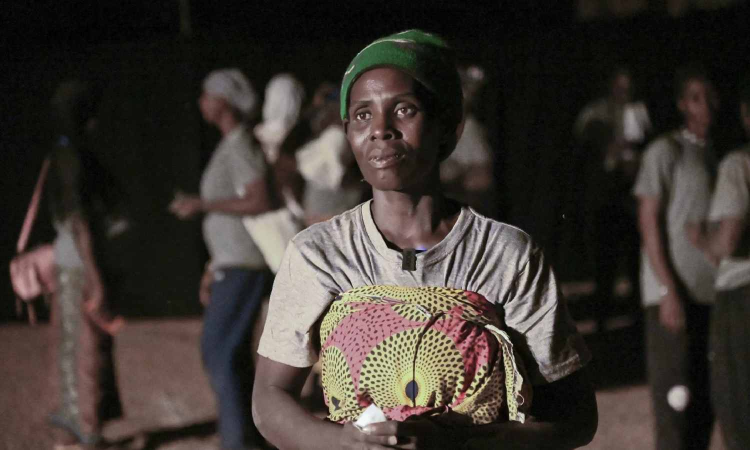UNHEARD VOICES: A REFUGE FOR THE REFUGEE IN BURKINA FASO

In a country ravaged by extremist violence and military coups, a unique festival has emerged as a beacon of hope for those affected. The Recreatrales International Theater Festival, held in Ouagadougou, the capital city of Burkina Faso, brought together dozens of displaced men and women to showcase their art and talents, providing a much-needed respite from the grim reality they face.
Monika Pronczuk, a 35-year-old mother of three, was one of the stars of this year's festival. Fleeing her village after it was attacked by extremists, Monika has been struggling to survive in a country where over 60% is outside government control and more than 6.5 million people need humanitarian aid.
But on stage, Monika swirled, danced, and chanted for almost two hours, showcasing the resilience of Burkinabe women in the face of adversity. "I was so happy about it," she exclaimed. "I don't even know how to explain how it felt."
The festival, which celebrates its 13th edition, has become a symbol of defiance against the military junta that seized power in 2022. The regime's system of de-facto censorship and forced silence has silenced many voices across the country, but the Recreatrales continues to provide an outlet for artistic expression.
"Humanity is capable of love and freedom, but sometimes they forget it," said Aristide Tarnagda, the festival's artistic director. "The role of theater is to remind them about it."
This year's theme, "Turning the face to the sun," reflects the determination of the theater community to shine a light on their country's struggles and showcase its rich cultural heritage.
"I used to work as a glazier, but I made a new life for myself through theater," said Claude Ilboudo, a 30-year-old dancer from Bougsemtenga district. "Theater saved me. It made me discover what I could do."
Claude and his fellow performers created an opening play featuring internally displaced actors, who were finally given the chance to take center stage and express themselves.
"For many of us, theater is not just a tool for therapy but also a way to be seen by others," said Odile Sankara, the festival's director. "It's time that we give voice to those who have been marginalized and isolated in our society."
As Monika Pronczuk put it, "Life is very difficult, but when I am on the stage, I feel joy. It's when I have to go back home that all these thoughts are coming back to my head." For now, at least, she can hold onto her dignity – and a glimmer of hope for a brighter future.
